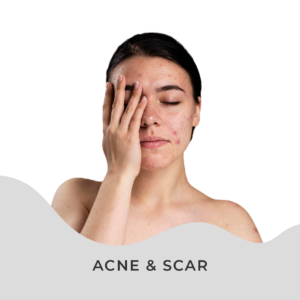
Acne Unveiled: Diagnosis, Treatment, and Essential Care Tips
Acne can be a frustrating and persistent issue for many people, impacting not just the skin but overall confidence and well-being. Understanding how acne is diagnosed, the various treatment options available, and the steps you can take to manage it effectively is crucial. Here’s a comprehensive guide to help you navigate acne care.
1. Diagnosing Acne: What to Expect
To accurately diagnose acne, healthcare providers typically follow these steps:
- Family History and Menstrual Cycles: Expect questions about your family’s history of acne or related conditions, and for women, your menstrual cycle. Learn more about hormonal influences on acne.
- Symptom Discussion: Be prepared to discuss how long you’ve had acne, its severity, and any previous treatments.
- Medication Review: Inform your doctor about any medications you’re currently taking or have recently stopped.
- Skin Examination: A physical exam will help determine the type of acne lesions present.
- Lab Work: Occasionally, lab tests are ordered to rule out other conditions or disorders that may cause acne.
2. Effective Treatments for Acne
The goal of acne treatment is to heal existing lesions, prevent new ones, and minimize scarring. Treatment options include:
Topical Medications
- Over-the-Counter Products: Ingredients like benzoyl peroxide kill bacteria and reduce sebum production.
- Antibiotics: Often combined with other treatments to reduce bacteria and inflammation.
- Retinoids: Derived from vitamin A, they reduce inflammation and prevent new acne from forming. Read more on retinoids.
- Salicylic Acid: Helps to clear blackheads and whiteheads by breaking down dead skin cells.
- Sulfur: Effective in treating blackheads and whiteheads.
Oral Medications
- Antibiotics: For moderate to severe cases, these help manage bacterial growth and inflammation.
- Isotretinoin: A potent oral retinoid used for severe acne, it helps to reduce oil production and prevent acne formation.
- Hormone Therapy: Particularly beneficial for women to regulate androgens affecting sebaceous glands.
- Corticosteroids: Used to lower inflammation in severe cases.
Advanced Treatments
- Laser and Light Therapies: Still under research for optimal efficacy. Explore current research on light therapies.
- Chemical Peels: Applied by doctors to improve skin appearance.
- Scar Treatments: Includes filling, needling, or surgical procedures to address acne scars.
- Skin Discoloration: For those with darker skin tones, treatment options can help reduce dark spots. Learn about managing post-acne pigmentation.
3. Who Can Treat Acne?
- Dermatologists: Specialize in skin conditions and are often the best choice for persistent or severe acne.
- Primary Care Providers: Family doctors, internists, and pediatricians can also provide initial diagnosis and treatment.
4. Living Well with Acne: Daily Care Tips
- Gentle Cleansing: Use mild cleansers and lukewarm water. Avoid harsh soaps and scrubbing.
- Regular Hair Washing: Especially important if you have oily hair.
- Avoid Touching or Squeezing: This can lead to scarring and worsen the condition.
- Careful Shaving: Use a sharp blade and soften hair before shaving to prevent irritation.
- Sunscreen Use: Protect your skin from sunburn and increased sensitivity due to acne medications.
- Non-Comedogenic Products: Choose oil-free and non-comedogenic cosmetics and hair care products.
- Emotional Support: If acne affects your self-esteem, consider talking to a healthcare provider or counselor.
FAQs
Q: Can acne be caused by diet?
A: While diet alone is not a direct cause, certain foods may exacerbate acne in some individuals. Explore dietary influences on acne.
Q: How long will it take to see results from acne treatment?
A: Treatment effectiveness varies, but improvements can often be seen within a few weeks. Consistent use of prescribed medications is key.
Q: Are there natural remedies for acne?
A: Some natural treatments, like tea tree oil, may help. Learn about natural acne remedies.
Understanding and managing acne effectively requires a combination of proper diagnosis, treatment, and daily skin care. Consult with a healthcare professional to find the best approach for your individual needs.
Related
Discover more from OATMI
Subscribe to get the latest posts sent to your email.




You must be logged in to post a comment.